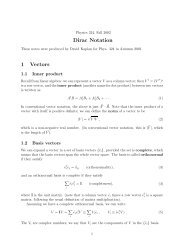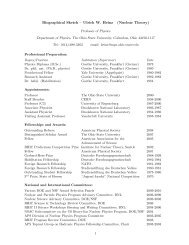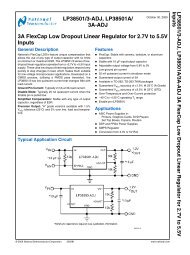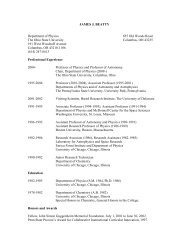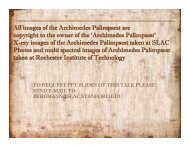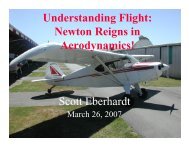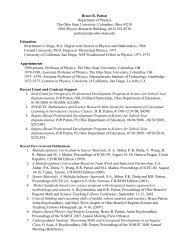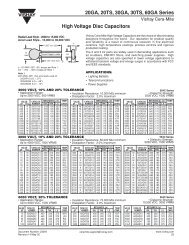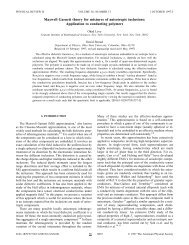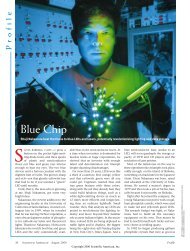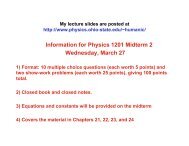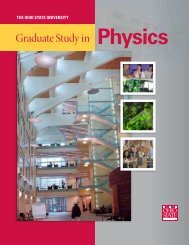Brasil Final Report - Department of Physics - The Ohio State University
Brasil Final Report - Department of Physics - The Ohio State University
Brasil Final Report - Department of Physics - The Ohio State University
You also want an ePaper? Increase the reach of your titles
YUMPU automatically turns print PDFs into web optimized ePapers that Google loves.
28<br />
can help students learn to do the kind <strong>of</strong> qualitative reasoning that can make physics meaningful to<br />
them and establish a sound basis for quantitative problem-solving.<br />
Meaningful learning connotes the ability to interpret and use knowledge in situations that differ<br />
from those in which it was initially acquired. Even when formulas and procedures are successfully<br />
memorized, they are likely to be forgotten after the course ends. An understanding <strong>of</strong> important<br />
physical concepts and the ability to do the reasoning necessary to apply these in a variety <strong>of</strong><br />
situations is <strong>of</strong> greater lasting value. To this end, students need to learn to ask themselves the types<br />
<strong>of</strong> questions necessary to determine if they do or do not understand a concept. <strong>The</strong>y also need to<br />
recognize what types <strong>of</strong> questions they must ask in order to develop to a functional understanding.<br />
Insights gained from research on the learning and teaching <strong>of</strong> physics can help achieve this goal,<br />
which is important for all students but especially for teachers and majors.<br />
ACKNOWLEDGMENTS<br />
<strong>The</strong> work reported in this paper is the result <strong>of</strong> close collaboration by many members <strong>of</strong> the<br />
<strong>Physics</strong> Education Group, present and past. Substantive contributions were made by Paula R.L.<br />
Heron, Peter S. Shaffer, and Stamatis Vokos. <strong>The</strong> doctoral dissertations <strong>of</strong> Karen Wosilait and<br />
Bradley Ambrose provided the research base. Support by the National Science Foundation is also<br />
gratefully acknowledged.




